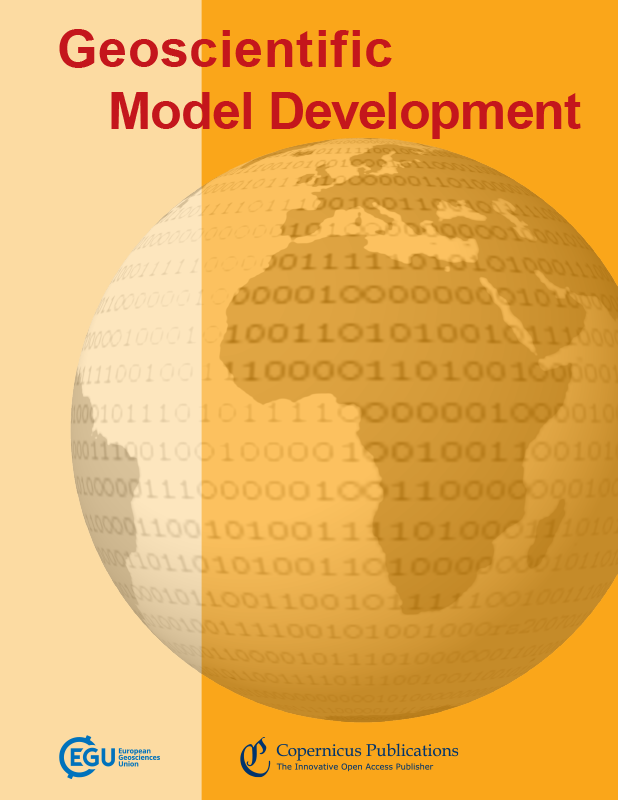评价线性大气反演问题质量的度量:微量气体反演的一个案例研究
IF 4
3区 地球科学
Q1 GEOSCIENCES, MULTIDISCIPLINARY
引用次数: 0
摘要
摘要已经提出了几种度量标准,并将其用于诊断线性贝叶斯和地质统计大气逆问题的性能。这些指标主要评估先前不确定性的减少,将建模观测值与真实观测值进行比较,并检查分布假设。尽管这些指标很重要,但应通过灵敏度分析来增强这些指标,以全面了解大气反演性能,并提高反演估计的质量和置信度。在这项研究中,我们推导了各种输入参数的局部灵敏度的闭合形式表达式,包括测量、协方差参数、协变量和前向算子。为了进一步增强我们的理解,我们用全局灵敏度分析的框架来补充局部灵敏度分析,该框架可以将输入参数的不确定性分配给与逆估计相关的不确定性。此外,我们提出了一个数学框架来从预先计算的前向算子构造非平稳相关矩阵,这与逆估计的总体质量密切相关。我们展示了我们的方法在加利福尼亚州洛杉矶估算甲烷通量的大气逆问题中的应用。本文章由计算机程序翻译,如有差异,请以英文原文为准。
Metrics for evaluating the quality in linear atmospheric inverse problems: a case study of a trace gas inversion
Abstract. Several metrics have been proposed and utilized to diagnose the performance of linear Bayesian and geostatistical atmospheric inverse problems. These metrics primarily assess the reductions in the prior uncertainties, compare modeled observations to true observations, and check distributional assumptions. Although important, these metrics should be augmented with a sensitivity analysis to obtain a comprehensive understanding of the atmospheric inversion performance and improve the quality and confidence in the inverse estimates. In this study, we derive closed-form expressions of local sensitivities for various input parameters, including measurements, covariance parameters, covariates, and a forward operator. To further enhance our understanding, we complement the local sensitivity analysis with a framework for a global sensitivity analysis that can apportion the uncertainty in input parameters to the uncertainty associated with inverse estimates. Additionally, we propose a mathematical framework to construct nonstationary correlation matrices from a precomputed forward operator, which is closely tied to the overall quality of inverse estimates. We demonstrate the application of our methodology in the context of an atmospheric inverse problem for estimating methane fluxes in Los Angeles, California.
求助全文
通过发布文献求助,成功后即可免费获取论文全文。
去求助
来源期刊

Geoscientific Model Development
GEOSCIENCES, MULTIDISCIPLINARY-
CiteScore
8.60
自引率
9.80%
发文量
352
审稿时长
6-12 weeks
期刊介绍:
Geoscientific Model Development (GMD) is an international scientific journal dedicated to the publication and public discussion of the description, development, and evaluation of numerical models of the Earth system and its components. The following manuscript types can be considered for peer-reviewed publication:
* geoscientific model descriptions, from statistical models to box models to GCMs;
* development and technical papers, describing developments such as new parameterizations or technical aspects of running models such as the reproducibility of results;
* new methods for assessment of models, including work on developing new metrics for assessing model performance and novel ways of comparing model results with observational data;
* papers describing new standard experiments for assessing model performance or novel ways of comparing model results with observational data;
* model experiment descriptions, including experimental details and project protocols;
* full evaluations of previously published models.
 求助内容:
求助内容: 应助结果提醒方式:
应助结果提醒方式:


